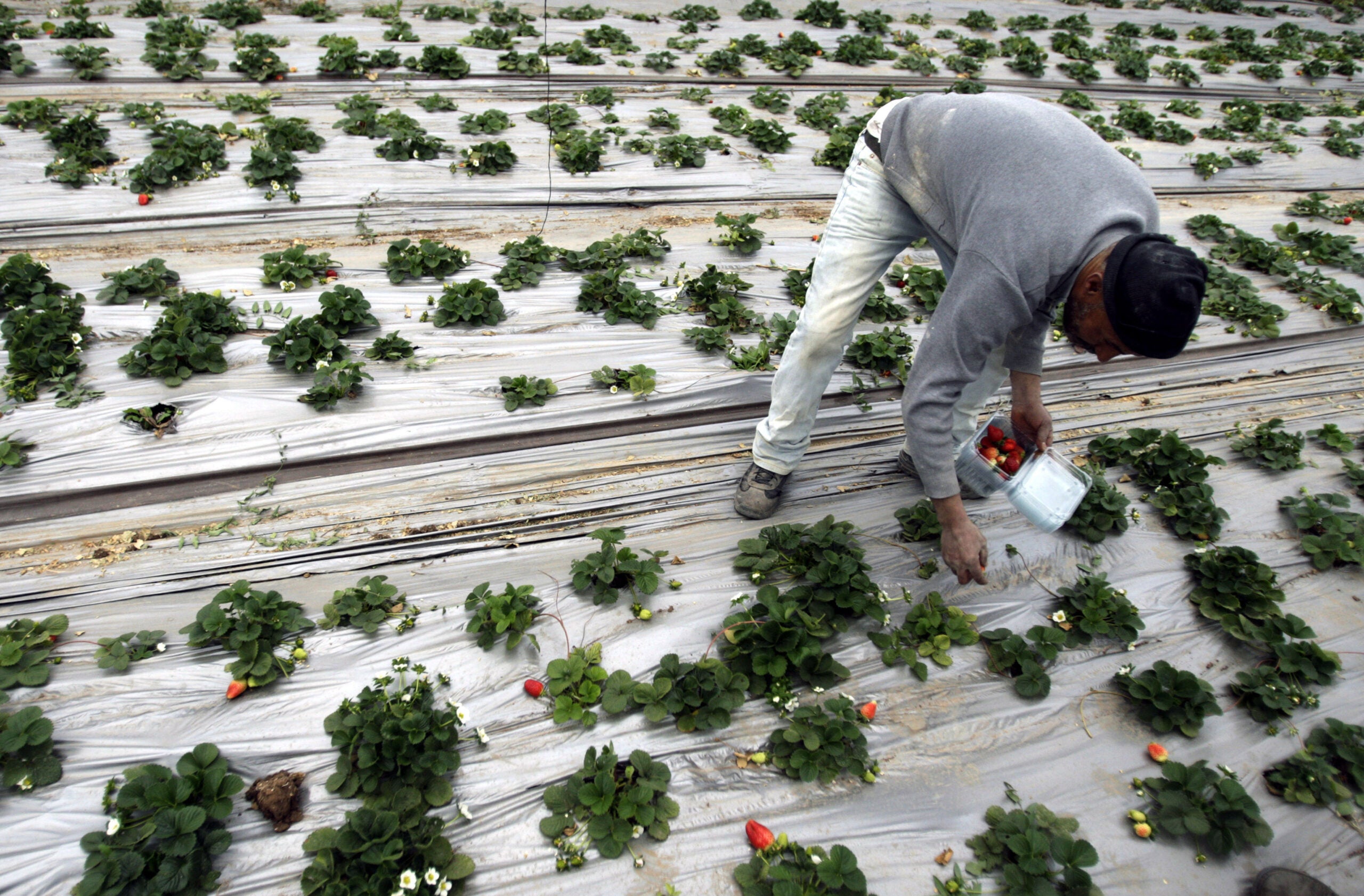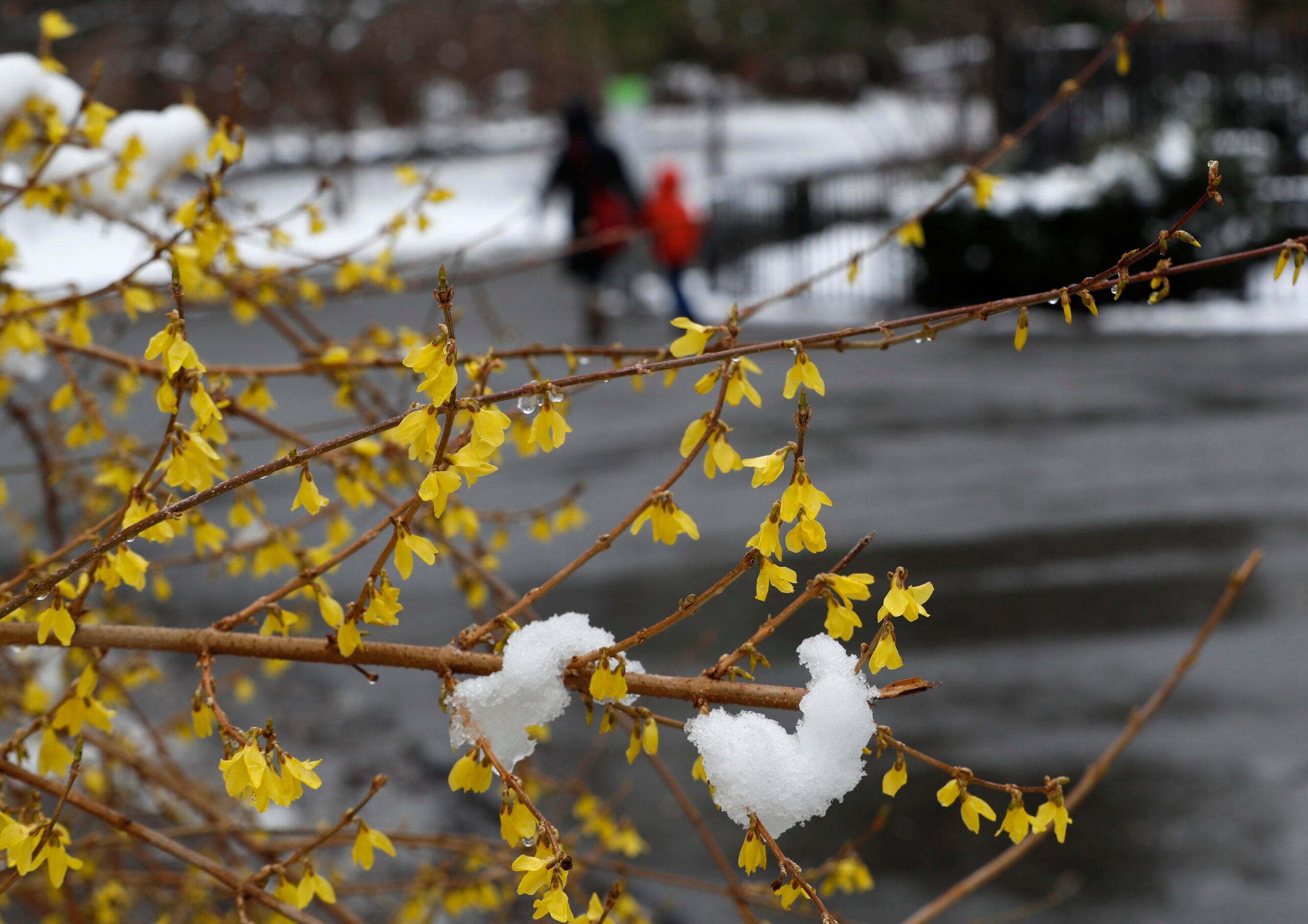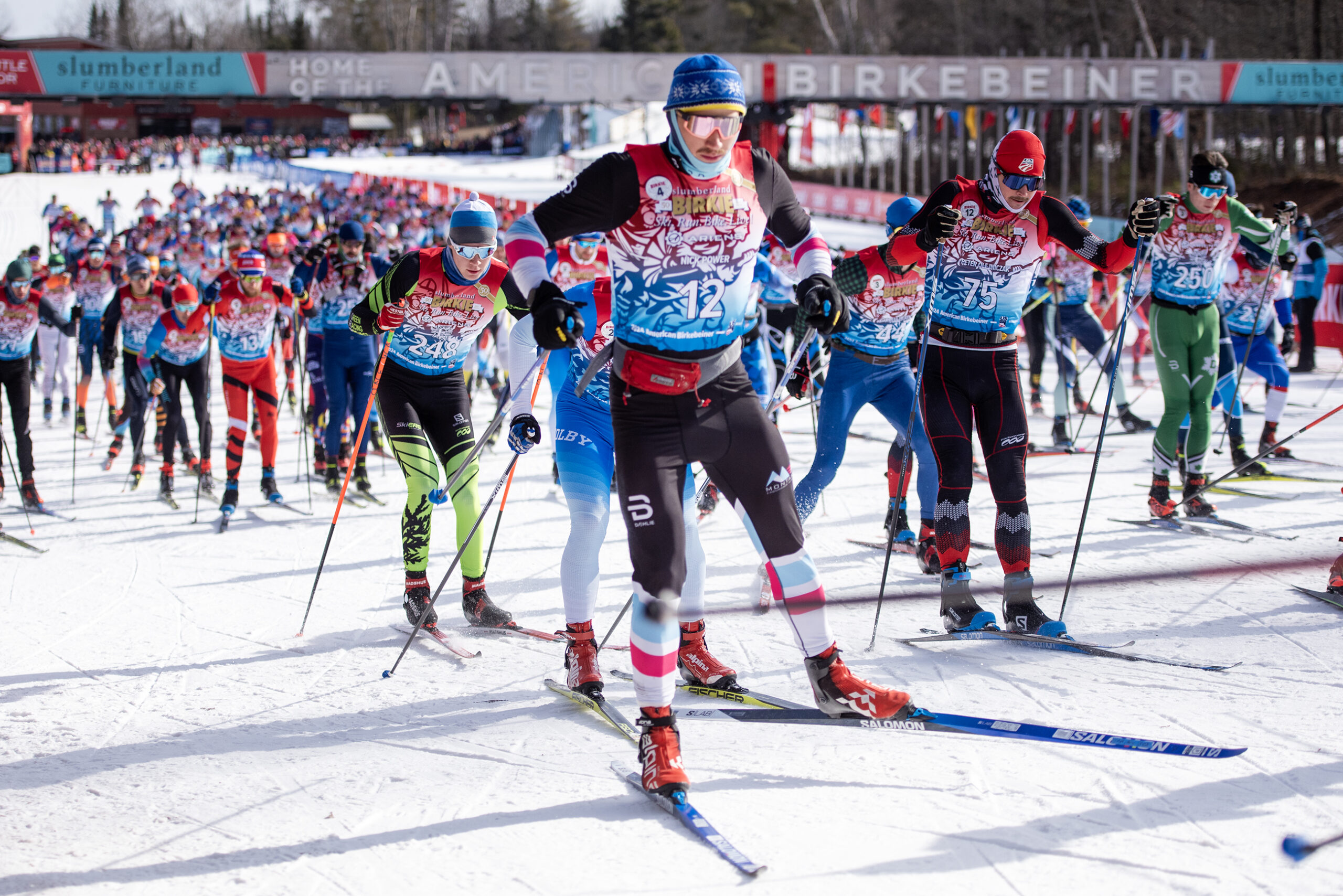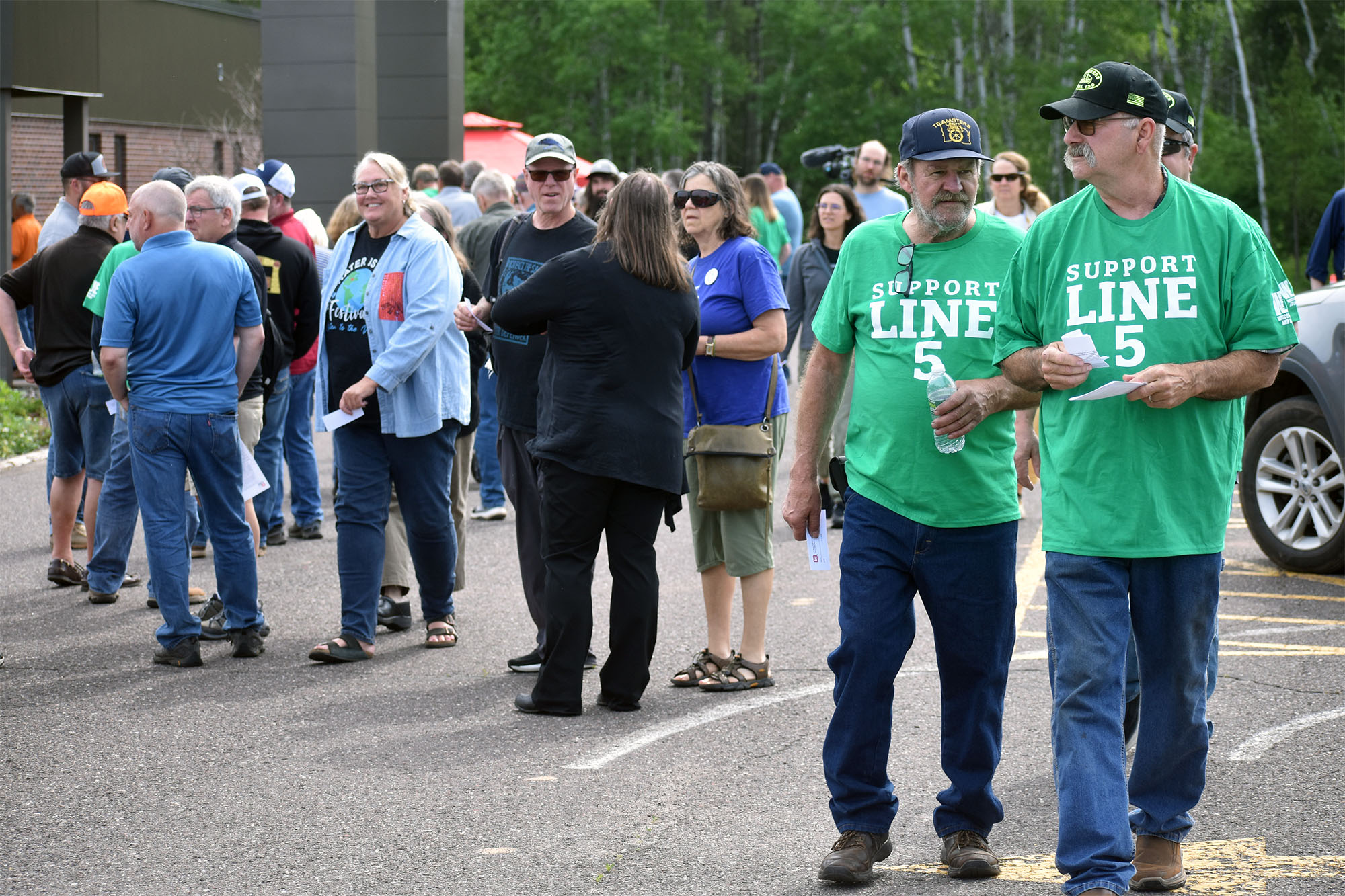April showers bring May flowers — and in Wisconsin, from time to time, those showers mean snow.
It happens every year, and every year, Wisconsinites still can’t believe it. But for the past 75 years, the state has seen snowfall every April, aside from one outlier in 1981, reports the Cap Times.
“The frequency of which snowfall occurs has been a staple to this area over the decades with no real pattern toward less or more occurrence — it’s fairly random,” Paul Collar of the National Weather Service in Green Bay told the Cap Times.
Stay informed on the latest news
Sign up for WPR’s email newsletter.
The average number of days with snow in April for every decade since the 1960s is just over four days, specifically in Madison, said Jon Martin, a professor and chair of Atmospheric and Oceanic Sciences at the University of Wisconsin-Madison.
Part of the April snow showers is due to lake effect snow, which is a pattern of climate change. In time, because of rising temperatures, periods of snowfall will more consistently manifest as rainfall.
“I have an expectation that next April we’ll have a couple of days where it snows, and it shouldn’t really get any of us nervous,” Martin said. “What would get me nervous is if we go a couple of years or three years in a row with no snow in April, because that’s never happened, and that would be pretty weird.”
Wisconsin DHS: COVID-19 Weekly Recap
The seven-day average for new COVID-19 cases in Wisconsin is 1,247 as of Friday. The Wisconsin Department of Health Services has confirmed 12,883 total deaths from the disease.
Sixty-one percent of Wisconsinites are fully vaccinated — 82.5 percent of people age 65 and older, 58.1 percent of children age 12 to 17, and 24.7 percent of children 5 to 11 years old. As of Friday, 34.1 percent have received a booster shot.
Favre to appear weekly on Milwaukee radio show
Former Green Bay Packers quarterback Brett Favre will appear for an interview segment every week during the “Jen, Gabe & Chewy” show on ESPN Milwaukee (WKTI Radio), according to the Milwaukee Journal Sentinel.
The Hall of Famer will begin appearing on the program every Monday morning starting Aug. 29.
Oak Creek Starbucks has unionized, making it Wisconsin’s first
A Starbucks in Oak Creek became the first Starbucks in the state to unionize.
Workers from the Howell Avenue location voted 15-8 Wednesday, according to TMJ4.
In February, employees at the Starbucks demanded union recognition from Starbucks CEO Kevin Johnson and local management.
According to TMJ4, the letter to Johnson read: “Wisconsin has a rich and complex history in the American labor movement despite former Governor Scott Walker’s historic attack on our state’s unions. We are proudly standing together 11 years later both as Starbucks partners and Wisconsinites to speak up for what we believe in as a store and as a state.”
Well, that’s sweet: Possible indoor hydroponic strawberry greenhouse could be largest in Midwest, even US
A 1.5-million-square-foot, hydroponic strawberry greenhouse in Janesville would likely be the biggest indoor hydroponic strawberry farm in the Midwest, possibly the entire continental U.S.
The proposed greenhouse operation would cover about 36 acres, according to the Janesville Gazette.
Milwaukee developer Three Leaf Partners and Indiana, hydroponic grower Local Roots are proposing the industrial greenhouse for fresh-grown strawberries.
Depending on annexation, and planning and zoning approvals, the goal is to break ground in the fall and open in late 2023 or early 2024.

Local Roots co-founder Nick Bloom recently visited Janesville to discuss the project.
According to the paper, Bloom said “sizeable” greenhouses would grow the berries that are then transported to clients, including grocery sellers, in the upper Midwest. The strawberries would be trucked no more than a couple hundred miles. This keeps the company’s carbon footprint lower and brings fresh berries quickly to the stores in Janesville and nearby, according to the paper.
“There was a huge shortage in the last year on strawberries throughout the whole country, and there’s projected to be another shortage going well into this year on strawberries,” Bloom said. “So it’s an item that a lot of larger retailers that I deal with are actually getting on ration; they’re not getting their full orders because there’s a supply-chain problem.”
Altoona man to judge world barbecue competition in Memphis
Jim Maier will take his well-honed barbecue judging talents to the international stage in May, where he’ll serve up judgement on sauces, poultry, pork and maybe even some exotic meats.
From Altoona, Maier will be a judge next month at the World Championship Barbecue Cooking Contest in Memphis, according to the Eau Claire Leader-Telegram.
The renowned championship, which runs from May 11 to 14, will bring together 270 teams and more than 15,000 spectators to this so-called “Super Bowl of Swine.” The teams will compete in 18 different categories.
Maier has hosted more than 30 grilling and barbecue competitions in Wisconsin, the newspaper reports. He has judged and participated in Kansas City Barbecue Society events and hosted a barbecue show on a local public access channel.
“I got into judging because I’m very inquisitive about the how and the why,” Maier said. “I want to know why this one is good, this one is very good and this one next to it is unbelievable.”
Superior City Council elects its first Indigenous president
Jenny Van Sickle, an Alaskan Native of Tlingit and Athabaskan heritage, was elected president of the Superior City Council at a meeting April 19, Madison365 reports.
In an interview with Madison365, Van Sickle — who works as an outreach specialist for the Great Lakes Indian Fish and Wildlife Commission — said a sustainable transportation system is one of her top priorities as president.
“Transportation is the lifeblood of my work,” she said. “We’re going to continue electrifying our city fleet. We will be electrifying our fire department as well. We just invested in solar. We are making a lot of environmental moves.”
As Superior’s first Indigenous president, Van Sickle reiterated how important representation in public service is for young people.
“(Superior) has a really rich, indigenous population, culture and history that has a real opportunity to shine. And you know, maybe I hope that I can be a part of the little kids in Superior starting to introduce themselves by their clan houses or with their Indigenous names,” she said. “I want little kids to see themselves in this landscape, in their government, in their art, in their food. And we have a really long way to go to realizing all of that progress in representation here in the Northland. This is a pretty good step towards that.”
Her term as president will last one year.
Pandemics and climate change: How they’re linked
The coronavirus has resurfaced the science behind how viruses transfer from animals to humans.
“Many scientists have argued that climate change will make pandemics more likely, but a groundbreaking new analysis shows that this worrying future is already here, and will be difficult to address,” writes Ed Young of The Atlantic.
Changes in climate are affecting various habitats of various species, forcing animals and organisms to relocate. In turn, these species must adapt to others that have been foreign to them, resulting in virus exchanges.
Young explains a study published Thursday indicates around 300,000 first encounters between species that normally don’t interact will occur in upcoming decades. This means there could be about 15,000 spillovers wherein viruses enter naive hosts.
The study was done by scientists Colin Carlson and Greg Albery of Georgetown University.
“The moment to stop climate change from increasing viral transmission was 15 years ago,” Carlson told The Atlantic. “We’re in a world that’s 1.2 degrees warmer (than preindustrial levels), and there is no backpedaling. We have to prepare for more pandemics because of it.”
Editor’s note: The Associated Press contributed to this report.
Wisconsin Public Radio, © Copyright 2025, Board of Regents of the University of Wisconsin System and Wisconsin Educational Communications Board.




